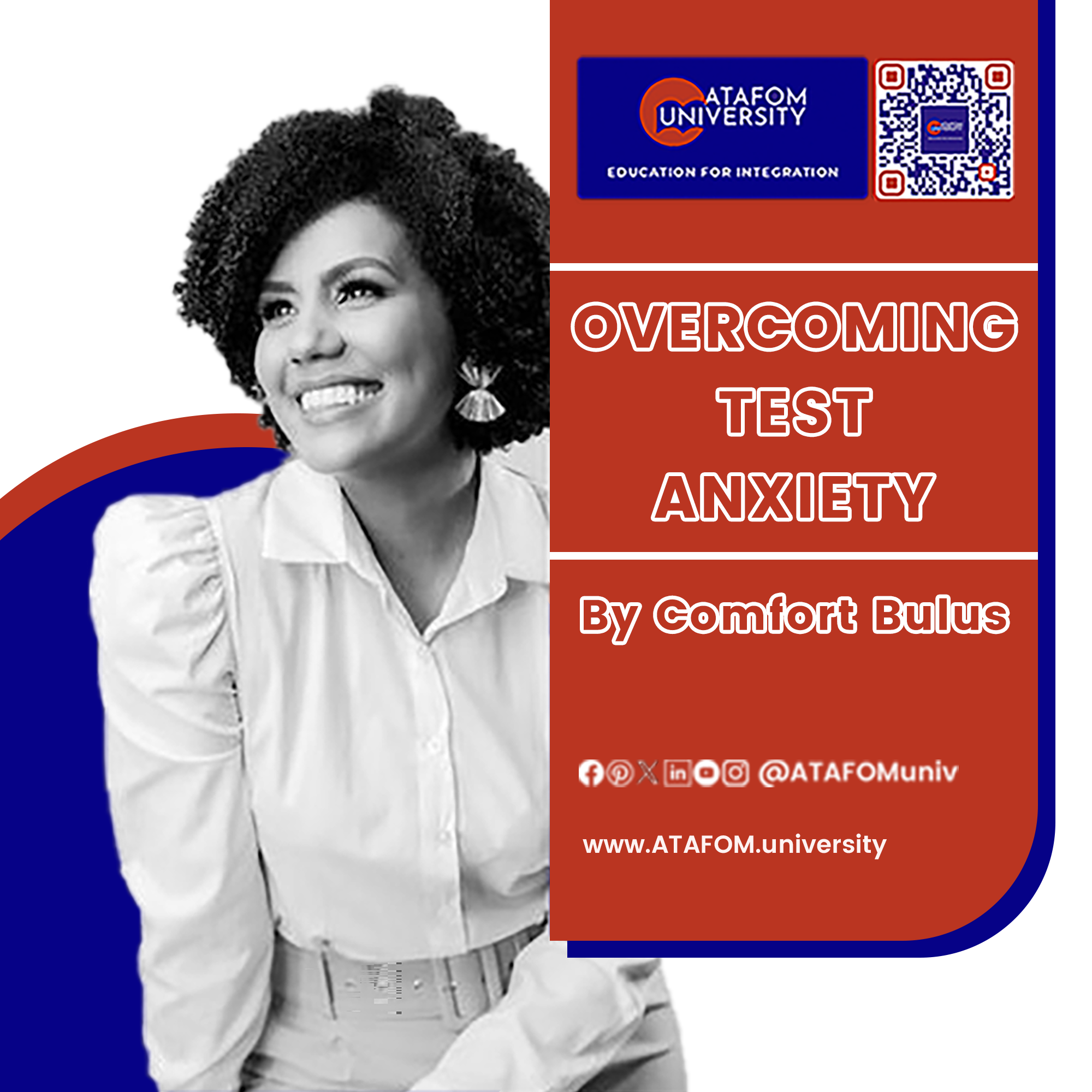For many, the most challenging aspect of a significant exam is the anxiety that develops beforehand, not the exam itself. Even though they have dedicated numerous hours to studying, practising, and getting ready, the upcoming exam can make it tough to sleep soundly, which is crucial for performing well. As you sit on test day, doubts start creeping in, making you question your preparedness. Suddenly, you freeze up, zoning out, feeling nervous, and sweating profusely. It’s test anxiety!
What is Test Anxiety?
Test anxiety is more than just normal exam jitters. It can cause fear and worry, negatively affecting your exam performance. It’s a form of outcome anxiety where you feel pressured to perform well in a given situation.
What are some symptoms of Test Anxiety?
For individuals experiencing anxiety, understanding the various symptoms that may be present can be a helpful tool in managing this condition. Cognitive, emotional, and physical symptoms are categorized for easy identification and management. By recognizing and addressing these symptoms, individuals can take proactive steps towards managing their anxiety and achieving a sense of calm and well-being. Anxiety is a normal response to stress, including tests. Test anxiety can affect your physical and mental health, as can any anxiety.
Passing important exams can be daunting due to the fear of failure. While pressure can be a good motivator, the worry of damaging one’s character or self-worth can be overwhelming. Even if you feel confident in your preparation, procrastination or lack of studying can lead to anxiety during the exam, negatively affecting your performance.
The attainment of a specific score can be a source of stress when it comes to passing a course or securing employment, leading to test anxiety. Rather than dwelling on past underperformance, it is essential to concentrate on the present tests to prevent any adverse effects on future outcomes.
It has been observed that test anxiety can have biological origins. This phenomenon occurs when the body produces adrenaline in response to a stressful event, which triggers the “fight-or-flight” response. This response can make it challenging to maintain focus on the test, and it may also lead to physical symptoms such as sweating, hand tremors, and nausea.
Test anxiety can stem from psychological factors in addition to biological ones. The anticipation of failure can significantly contribute to this anxiety, as students may experience nervousness and unease both before and during an exam. Furthermore, past experiences with exam anxiety can lead to apprehension and concern about future examinations.
Here are some ways in which you can overcome test anxiety:
To study effectively, try interactive learning instead of just reviewing notes. Handwritten notes with different colors can help with retention and organization. Also, find a dedicated study space for better concentration and improved memory recall.
For optimal exam results, allowing enough time for morning preparation and establishing a consistent pre-test routine is important. Following a routine can help you get into the right mindset and prepare effectively. Maintaining a positive attitude during preparation can also greatly impact chances of success.
When preparing for an exam, it can be bebeneficial to shift your focus from the questions you may struggle with to the topics that you have difficulty comprehending. By identifying patterns and connections between the more challenging subjects, you may better understand the material and improve your overall performance on the test. It is important to prioritize learning and growth and to approach challenges with a positive and proactive attitude.
Establishing a consistent and systematic routine before undertaking an examination is imperative. The human brain responds positively to patterns. Therefore adhering to a reliable study regimen or placement test preparation plan will aid in mentally preparing for the forthcoming assessment. This approach allows the brain to become alert and primed for the task.
Having a positive outlook post-examination can significantly impact one’s success. Studies indicate that developing a positive attitude can improve problem-solving skills, enhance creativity, aid in focus, and boost mental productivity. If feeling anxious about a test, taking a deep breath and recalling positive memories can help. By adopting a positive mindset, individuals can increase their likelihood of achieving desired outcomes.
To prepare for an exam, it’s essential to identify areas of difficulty and focus on them while studying. Look for patterns and consider any learning disabilities you may have, such as ADHD or dyslexia, to tailor your approach. By addressing weaknesses, you can increase your chances of success on the exam.
To do well on a test, start by answering the questions you know best and continue this strategy throughout. Be sure to manage your time and avoid comparing yourself to others. Read the questions carefully before guessing to ensure accuracy.
It is imperative to acknowledge that experiencing academic stress or test anxiety is typical and expected. Research suggests excessive worry and anxiety over an exam can impair academic performance. Thus, it is vital to recognize that a certain stress level can be beneficial as it can help maintain focus and preparedness. Discouraging or suppressing this emotion may result in counterproductive outcomes. It is therefore recommended to embrace and manage this emotion constructively.
Examples of this are nervousness before freezing or a panic attack. This can happen when preparing/studying for or taking an exam. If you feel uneasy before or during the test, follow the steps above to calm down. If your anxiety persists after the test, give yourself some positive affirmations available after a Google search.
ATAFOM University International will help you get the best exam result


